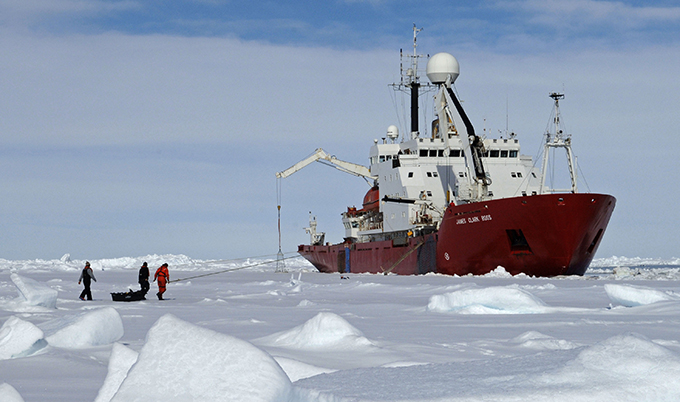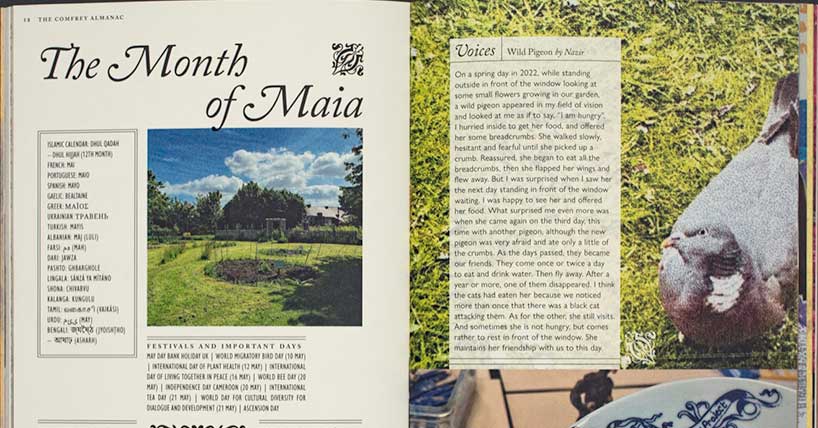Arctic mission
£10m research mission to the Arctic
Published on: 30 June 2017
Newcastle researcher part of a UK mission to explore the Changing Arctic Ocean.
A new £10 Million research programme has been announced to investigate how the Arctic Ocean is changing in response to climate change.
Funded by the Natural Environment Research Council (NERC), over 20 researchers from 16 UK research institutes will join forces to understand the knock-on effects of rapid warming and sea ice loss in the Arctic region.
Some of the clearest signs of change are the thinning and retreat of sea ice and the migration of species into the Arctic that normally live at lower latitudes. These changes are likely to have an unprecedented impact on how the Arctic ecosystem operates.
For example, as the fastest warming oceanic region in the world, the Arctic could be free of sea ice in summer within a few decades. This change is likely to affect the UK climate and economy, with anticipated impacts on industries like tourism and fisheries.

Better understanding of the changing Arctic
The team of UK scientists, including geochemist Dr Geoffrey Abbott from Newcastle University, will contribute to international efforts to build a comprehensive picture of the constantly changing Arctic environment.
They will look at a wide range of complex interactions between different organisms in the ocean and at the seafloor. Robotic underwater vehicles will also be deployed to collect data near the edge of the sea ice. Hundreds of litres of seawater will be filtered to capture phytoplankton, and special plankton nets will capture zooplankton, small animals that are an essential food source in the Arctic.
Dr Jo Hopkins, from the National Oceanography Centre and Principal Scientific Officer on the ship, said:
“This is an exciting and ambitious first cruise that will collect a vast amount of information about Arctic water and sediments and the life that they support. Improving our understanding of how the Arctic ecosystem functions today will help us better predict and manage how it may change in the future.”
Four key projects
The ultimate goal of Changing Arctic Oceans is to generate a better understanding of the Arctic so models can more accurately predict future change to the environment and the ecosystem. Within the Programme itself there are 76 scientists, with the lead investigators from the Scottish Association for Marine Science (SAMS) and the Universities of Leeds and Liverpool.
The four projects cover different aspects of the Programme’s goals: the way change in the Arctic is affecting the food chain, from small organisms at the bottom to large predators at the top (ARISE); how warming influences the single main food source at the bottom of the food chain (DIAPOD); the effect of retreating and thinning sea ice on nutrients and sea life in the surface ocean (Arctic PRIZE); and on the ecosystem at the seafloor (ChAOS).
Dr Abbott is part of the ChAOS project which is led by Dr Christian März, University of Leeds.
“Our ChAOS project will focus on the bottom of the Arctic Ocean, the seafloor, which is by no means the boring, dark environment it might be perceived as.
"It is, in fact, a complex ecosystem teeming with life, and it plays an extremely important role in Arctic biodiversity, food webs, the recycling of nutrients back into the overlying water, and the long-term burial of the greenhouse gas carbon dioxide as dead organic material.
"Our ChAOS team will, without doubt, have the muddiest job on the upcoming RRS James Clark Ross expedition, but someone needs to do it - and we love it.”
Details of the cruise and the research programme can be found at http://www.nerc.ac.uk/research/funded/programmes/arcticocean/ and https://arcticarise.wordpress.com/
Press release courtesy of NERC



